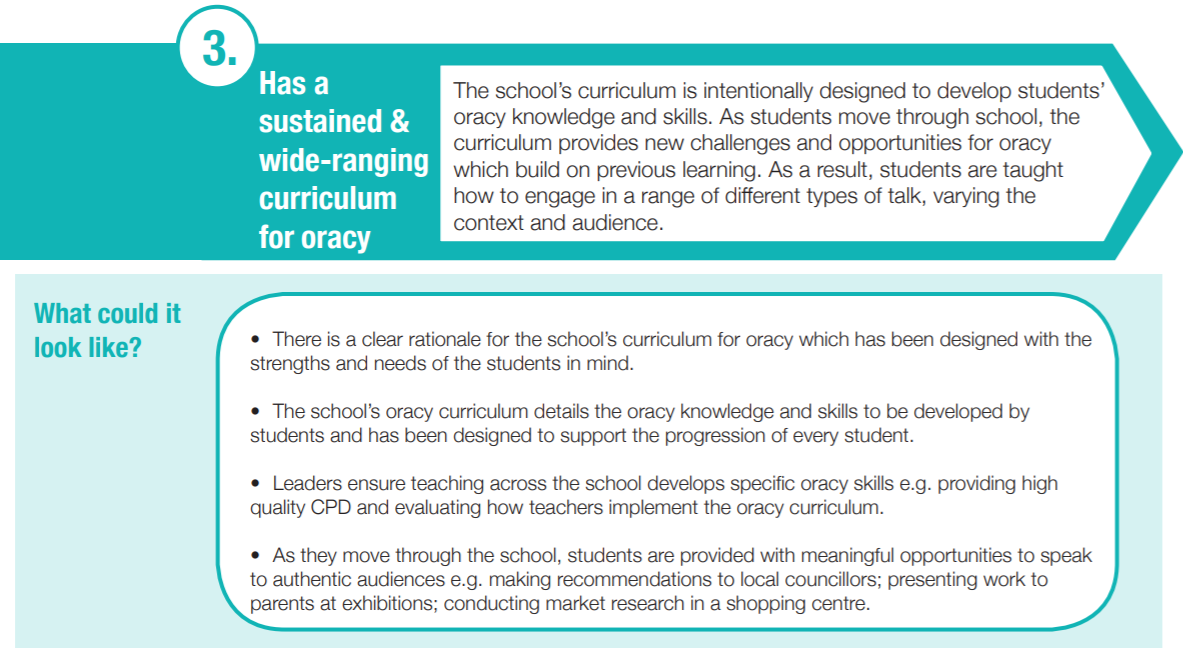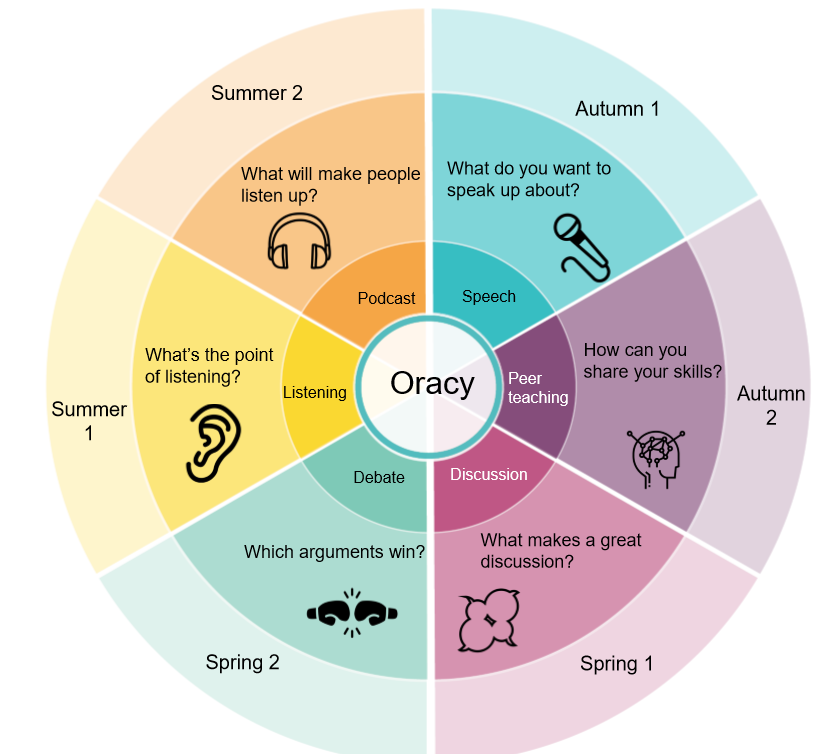December 2019
Get Talking in PRUs is a year-long project to develop oracy in eleven Pupil Referral Units across the country. Below, we share some of our learnings about oracy curriculum design in a PRU context.
A high-quality oracy curriculum ensures that oracy is part of every student’s education, and is not left to chance or enjoyed only by a self-selecting few. For students in pupil referral units, who are likely to have (often untreated) speech and language needs, an oracy curriculum enables teachers to plan for their students progression in oracy across a range of contexts.
Creating an oracy curriculum requires a school to break down the foundational oracy skills they want every student to have, and think logically about how they are taught, honed and reinforced through a student’s time at school.
This could be realised through embedding oracy into the core curriculum with different subjects or year groups taking responsibility for teaching different aspects of oracy. Or it could be through a discrete oracy curriculum taught in dedicated curriculum time, perhaps led by specialist teachers. Alternatively, it could be a combination of both approaches.
In a PRU setting, curriculum design is made more challenging as students arrive and leave at different points throughout the school year. Below, we explore how two PRUs we are working with have decided to approach planning oracy into their curriculum.

Mayesbrook Park School, Dagenham, London
From January, teachers at Mayesbrook Park School will begin teaching a timetabled 50 minute oracy lesson, once a week, to all students. Recognising the challenge of a transient student population, the school have planned their curriculum to be:
As part of the curriculum planning process, teachers also considered the skills they felt their students needed to develop, such as listening, and real life contexts where they would be able to practice, demonstrate and excel at this. For instance, listening to external speakers talk about their careers and visiting a local old peoples’ home to listen to their stories.

Pivot Academy, Leeds
Leaders at Pivot Academy want to develop oracy practice within one area of the curriculum as a first step to rolling out similar strategies across all subject areas. The Oracy Lead has been working with Voice 21 to embed talk-rich approaches to teaching and learning within PHSE lessons, which staff across the school teach. In the New Year, this focus will also shift to consider how oracy skills are taught to ensure progression over time, and work towards purposeful oracy outcomes each half term. Keep an eye on the Voice 21 Exchange where we’ll be posting updates about this!
Questions to consider when planning an oracy curriculum:
© 2024 Voice 21. Voice 21 is a registered charity in England and Wales. Charity number 1152672 | Company no. 08165798